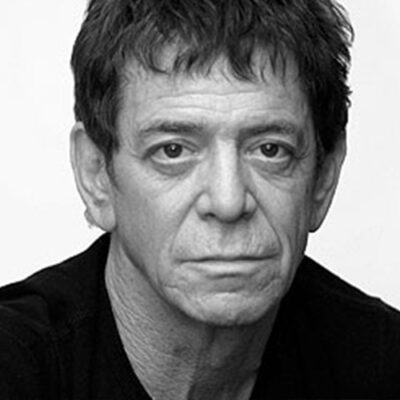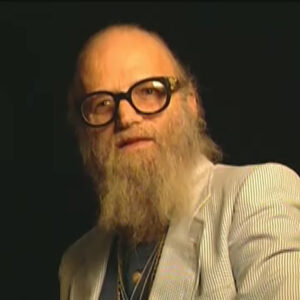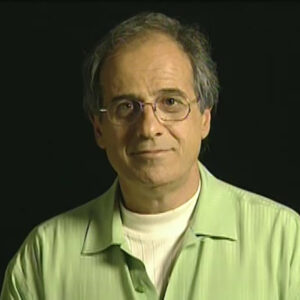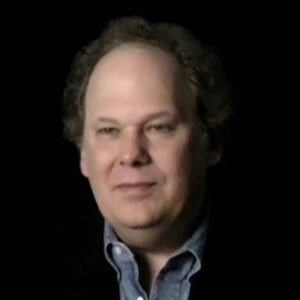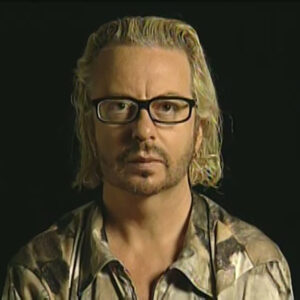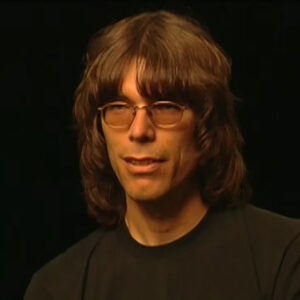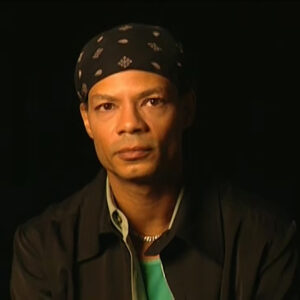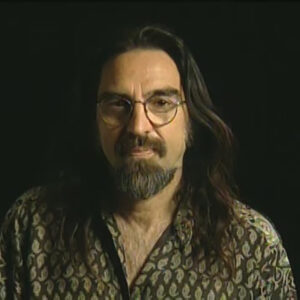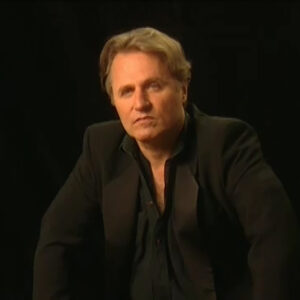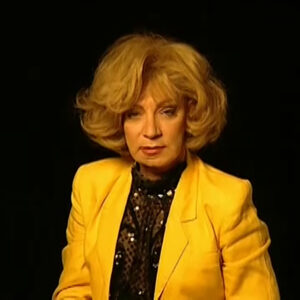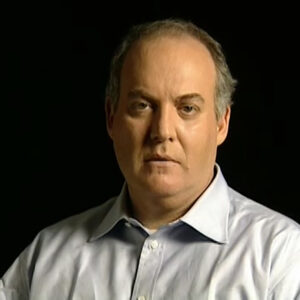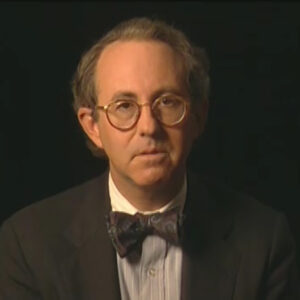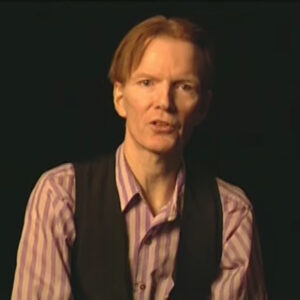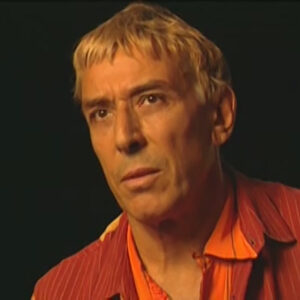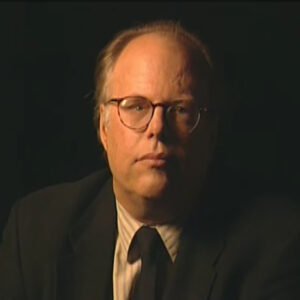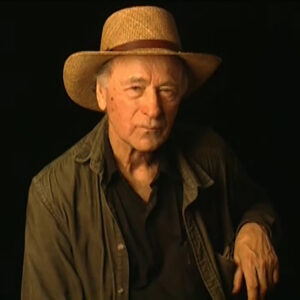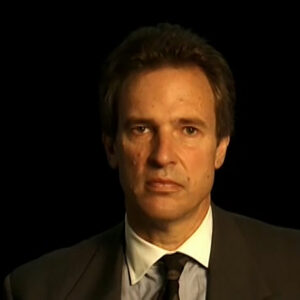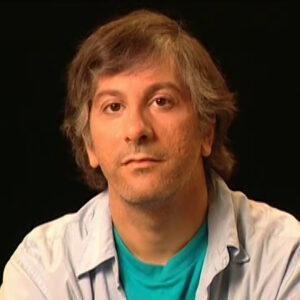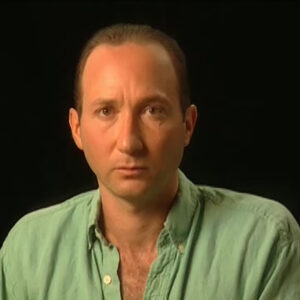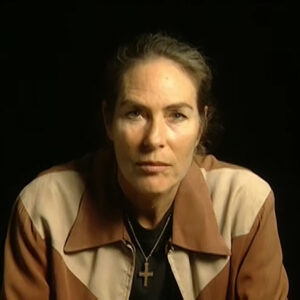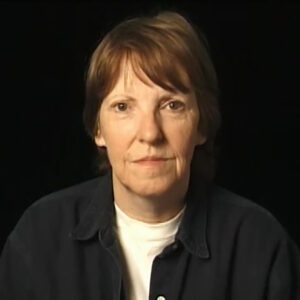David Bowie: I think well, firstly, “Waiting for the Man” I think is probably the most important of the four in a way. Our then manager brought back an album. It was a it was just a plastic demo album of Velvet’s very first album in 1965-ish? Something like that. And he was particularly pleased because Warhol had signed the sticker on the middle. I still have it by the way! I still have that album. And he said “Well, I don’t know why he’s doing music. This music’s as bad as his painting!” and I thought “Hmm, I’m gonna like this!” So I’ve I’d never heard anything quite like it. It was a revelation to me.
Interviewer: And that’s and so it influenced your own writing and music in some way?
David Bowie: I think, uhhh, yes, tentatively, it influenced what I was to do for the next few years. I don’t think it outrightly, I don’t think I ever felt that I was in a position to become a Velvet’s clone, but there were elements of what Lou was doing that I thought would just unavoidably right for both the times and for where music was going. One of it was the use of the…of cacophony as background noise and to create a kind of an ambience that had been hitherto unknown in rock, I think.
Interviewer: Absolutely
David Bowie: And the other thing was the the nature of his lyric writing, which for me just it smacked of things like Hubert Selby Junior, recently being the “Last Exit from Brooklyn”, which under also John Rechy’s book “City of the Night.” Both books of which made a huge impact on me. And Lou’s writing was right in that ballpark. It was…Dylan had certainly brought a new kind of intelligence to pop songwriting, but then Lou had taken it even further into the avant garde and had it had its roots in Baudelaire and Rimbaud and that side, that other thread of history which isn’t talked about very much, which it is now, of course, now it is history. But at that time it was merely a thread. It wasn’t considered important in fact.
Interviewer: I couldn’t have asked for anything better than what you just said. It was wonderful. You introduced Lou that night as “The King of New York” and I think…
David Bowie: Chris Walken was in the in the audience! I felt awful afterwards. He said “I’M the king of New York!” I said “Of course you are. Well that’s your…I have all the royalty here” I said.
Interviewer: Can you tell me how Lou is the king of New York to you?
David Bowie: Well, it’s the New York that I want to know about. I think there were probably everybody has their own New York. But for me, New York was always James Dean walking up the middle of the road. And it was always the Fugs, the Village Fugs. And it was always it was the Beats. And it was Soho and it was that kind of the bohemian intellectual extravagance that made it so vibrant for someone like me growing up in quite a gray, suburban, tenement filled South London environment. It seemed to be…that seemed to be the heart, the network of life, you know, and it’s where we all wanted to escape to if if people were like me, we wanted to out and we wanted in to places like New York, far more so than the West Coast.
Interviewer: Right. I noticed that I wanted to play. It was so much sort of fun onstage. I could see Lou’s face was just so happy and just talk a little bit what it’s like to play those songs with Lou.
David Bowie: It’s strange working with Lou. That’s the first time we’ve actually worked like that together since the time that we made “Transformer” album. And all I could see was luggage… (Laughs) But the interesting thing was, because we had sort of a one period not seen much of each other is that these were suitcases I didn’t know about and I wanted to see what was in them. Over the last year or two, we’ve reacquainted with each other and it’s so nice at this time in our lives, I think, to kind of look back and see that we both had considerable artistic successes since we both began. And it’s nice to feel that you’ve contributed in a fairly major way to how music, how your chosen art has progressed, because it’s the way that one wanted it to do when you started off. You think “I know what I wanted to do!” you know, and I think both of us feel that we we did what we set out to do, which was change the course of the river a bit.
Interviewer: You know, this relationship between the two of you. That’s a very rare trans-Atlantic connection.
David Bowie: Yeah.
Interviewer: And atypicial of music, I think that’s extraordinary to me.
David Bowie: Yes. I think…
Interviewer: The influences back and forth.
David Bowie: I think there’s a mutual regard for the differences between ourselves. And we both, as you obviously know, that we have very different backgrounds. Also, I think that we probably have different interests in life, but there are certain areas where we definitely meet. I think in visual terms and also in literature, I think we both have very similar likes, both Burroughs nuts and. He was taught by Schwartz, wasn’t he?
Interviewer: Delmore Schwartz.
David Bowie: Yeah, yeah, yeah, that’s right.
Interviewer: A teacher.
David Bowie: That’s right.
Interviewer: Are you familiar with Schwartz?
David Bowie: Yes, I am. Yeah.
Interviewer: Lou talks about that as being. He sees the great stories of Schwarz’s as sort of a way that inspired him to write his own songs into a very condensed material. And I know you’ve sort of quoted once that John Lennon about how he said, let me find my quote here,
David Bowie: Say what you mean. Yeah. Lennon, I think I Lou did grasp that very quickly. Say what you mean. Rhyme, make it rhyme and put it to a backbeat. And Lou was always very concise. He never wasted words.
Interviewer: And that’s maybe a secret to your own writing, too.
David Bowie: I don’t know. I think I get a lot more elaborate. I mean, I tend to be far more baroque than Lou. But that’s the British in me. I say what I mean eventually. I tend to go a long way around them.
Interviewer: I appreciate it. Transformer of course was a tremendously important transitional record for Lou and can you talk a little bit about that album? I mean, I walk on the wild side the first time you heard it, did you? How did it change that?
David Bowie: The thing is with Lou, he was so generous to work with. I mean, I was petrified that he said, yes, he would like to sort of work with me and with me and in the producer capacity because I had so many ideas and I felt so intimidated by my knowledge of the work that he’d already done. I mean, even though they’ve sort of only that much time between us, it seemed like Lou had this great legacy of work, which indeed he did have, and that it felt impertinent of me to kind of recommend that we do things in certain styles and certain ways. But he just gave the whole project over to me, and I really hoped that I wouldn’t let him down. You know, I really wanted it to work for him and be a memorable album that people wouldn’t forget.
Interviewer: And Herbie Flowers, the baseline.
David Bowie: Yes. He let me choose an awful well, all the musicians for it and of course Ronson was a major, major part of it all.
Interviewer: And sax.
David Bowie: Yeah. Yeah. Baritone sax one time was in the top three in the world with Gerry Mulligan. His name is Ronnie Ross. Sadly, not with us anymore.
Interviewer: What year’s Transformer.
David Bowie: Oh, I don’t know things like that. It must have been maybe ’73. I don’t know. Who were you? Was it 2. ’72 indeed. There you are.
Interviewer: Other songs in there we’ll go very quickly. Vicious.
David Bowie: Vicious. I mean, I love the fact that they. That the record company at the time I think was RCA did agree that Walk on the Wild Side was a classic and wonderful song. Absolutely brilliant. But I, I really wanted them to bring out Vicious thinking, bring out Vicious as the second single. I’m not sure that they ever did, but I felt that would have been a great single. I think looking back on them, of course they’re all such memorable, well crafted and well written pieces of work. It’s almost like, ah there we are. I mean, there’s so many songs on here that should and could have been and probably will be one day singles by other bands.
Interviewer: Any favorites on there?
David Bowie: Sure let’s see. Let’s give Satellite of Love to Blur and we’ll give perfect day to Suede. Vicious to Placebo, you see, I mean, there’s so many songs here that could definitely. Make Up to RuPaul, I suppose.
Interviewer: And New York Telephone Conversation,.
David Bowie: I do, I’ll take that one.
Interviewer: Glam rock, essentially.
David Bowie: Glam rock, right? I’m sorry you’ve lost me there. Glam rock. Nope.
Interviewer: I have here that you invented it.
David Bowie: Of course!
Interviewer: It’s this it’s still incredibly important today, that twenty five years later that the influence of glam rock is just staggering. Can you talk a little bit about you know, I think, John Lennon had a great line about glam rock as just rock and roll…
David Bowie: …with lipstick on. I think I’ll say it again. I’ll say it again. Yes. John Lennon called it called glam rock rock and roll with lipstick on. I think he understated. I think he simplified. I think that they’re probably why glam rock seems to have such episodic longevity about it is that it really wasn’t too easy to define. It was made up of so many nuances. It had the very straightforward, almost puritan aspects of New York Dolls. They’re quite easy to suss out what their focus was. But then it had all this kind of artsy, neo pretentious thing from the Brit art school lot, including for foremostly myself and Roxy Music. We saw naturally enough, we kind of piled it on with innuendo from the Dadaists and from the idea of the androgyny thing that happened with Duchamp and the photographs that he took from himself and all that. And we tried.
Interviewer: Another connections to glam rock, how would you describe that?
David Bowie: Again, I think initially, more than anything else, just the verbal and musical zeitgeist that he created his, he gave us the environment in which to put our vision, our more theatrical vision. He he supplied us with the the street and the landscape. And we peopled it.
Interviewer: In the movie Basquiat where you played Andy Warhol and I think brilliantly, and I’ve talked to Lou about this and he thinks it’s just an unbelievable performance. What side of Andy do you think you captured that Lou responded to so positively?
David Bowie: I think that he was actually a very nice guy. I never found him anything other than polite, insecure, quite vulnerable, bitchy in the nicest possible way. Very funny. A little bit in awe of his own reputation. I never felt that he had the kind of confidence that so many others would have you believe. I never saw him as the man of steel and this kind of hard nosed manipulator. I think anybody who does well in their craft pretty much keeps on course and knows what they want and does thing and does things in a particular manner. And he probably did that as much as any of us did. But I don’t ever I didn’t feel that he was quite as assured about what it was he was doing or why he was actually as big as he was. I’m not sure that he ever really understood why.
Interviewer: Sort of a last question, a combination question, to tell me anything you went to about Lou if you’d wanted and then also Lou was popular in Europe and
David Bowie: Yeah.
Interviewer: Can you…does it make any sense that Lou is this sort of personification of New York or a some American archetype? Is there something you could talk about Lou in that context?
David Bowie: I think he got I think he…as in an iconic sense, I think he projects the feeling of the bad boy that we all, especially when we were younger, so passionately want to be. I think he was the first man that you believe there are so many doors that are closed on his life that you would quite like to unlock, but maybe you wouldn’t really. There’s a kind of there’s a a melodious kind of enigmatic thing about him, which is, in the hierarchy of rock gods, that pantheon of mythology that we’ve developed. I think he’s a needed deity. Absolutely.
Interviewer: And my question are done uless, Karen wants to…oh, I’m sorry. First time you met, if you could just tell me, I remember reading it was at the Ginger Man in New York in 1971. Does it bring back you can just make it up.
David Bowie: No! The earliest. I have a very funny story, actually. Oh, this is this, is I told Lou he could not believe this. He thought this was hysterical. I first I first saw the Velvet Underground, and I think it might have been about ’71. And a friend of mine who worked on Rolling Stone magazine at the time said, “You’re lucky to have come into New York this week. The Underground are probably playing one of their last gigs at the Electric Circus. And it was probably the last days of the Electric Circus. So I went along and I got in the front row and I was the world’s biggest fan. Was singing along with Lou. Every word. And they were all there. And and I thought, “this is just heaven. I died and gone to heaven.” I’d come straight from Britain, first day in the States. I’m here in New York watching Lou Reed in the Velvet Underground. After the show, I went backstage and I knocked on the door and Lou came to the door and I said, “Look, I’m from England. I know all about your music. I said, you’re virtually unknown in England, but I’m doing like a one man PR job on this band, ’cause I think you’re so great. Can we talk?” So we sat down and we talked for about half an hour and I talked about the songs and all the writing, whatever. And it was it was just it was just so special for me. But a week later, I saw this journalist friend of mine. I said Lou was so great. And he told me he said “No. Lou left the band about a year ago.” I said, “So who was that?” He said that was Doug Yule. I said “Doug Yule?” I said “but he didn’t tell me that he wasn’t Lou.” And we were talking about songs like Wainting for the Man. It was the most extraordinary thing. And then then Lou told me a few weeks ago, he said, he said “Yeah, you know, I did a book signing a few weeks ago. And Doug Yule was in the queue.”.
Interviewer: We’re done.
David Bowie: All right.
Interviewer: Lou Reed.
David Bowie: Lou Reed. Lou Reed.
Interviewer: Velvet Underground.
David Bowie: Velvet Underground. Velvet Underground.
Interviewer: Say what you mean. Say what you mean, make it rhyme and put it…the Lennon quote. Which is, if you want it precisely…
Interviewer 2: “Say what you mean, make it rhyme…”
Interviewer: “…make it rhyme…”
David Bowie: And put it to what it was the last line?
Interviewer: Put it to a backbeat.
David Bowie: Say what you mean. Make it rhyme. Put it to a backbeat. Say what you mean. Make it rhyme. Put it to a backbeat.
Interviewer: Two things and we’re done at two minutes.
David Bowie: Hi, I’m David Bowie. Oh, I see, I see, it’s just a silent.
Interviewer: Looking right into, into the yeah.

